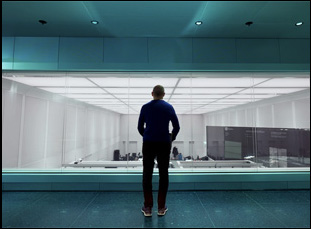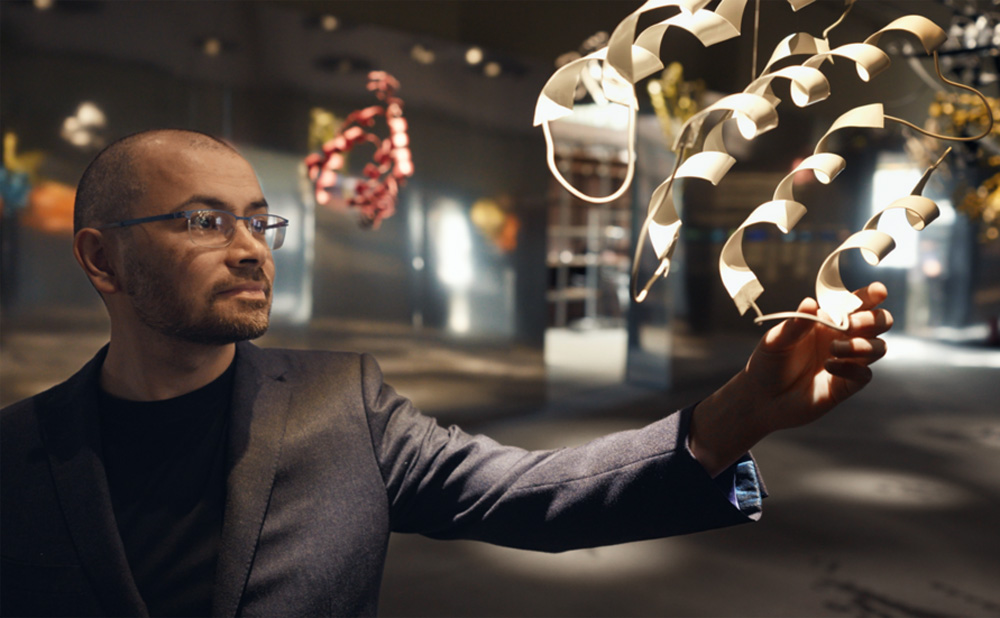In the week ahead of the second installment of the IRL Movie Club, the project’s founder Annie Roney was at Sundance where an annual tradition commenced – filmmakers were raising provocative questions with new works and distributors were looking for answers in terms of finding an audience for them.
“Given the crisis that our industry finds itself in, everything I read is who’s going to come up with the next way to do things, like how are we disrupting this?” said Roney, who has long found good homes for documentaries as a sales agent for ROCO Films, but has seen many good films get lost on their way to the public after their festival run in recent years. “We have to throw out the way we used to think of distributing films and come up with a new way, so we’re just doing it.”
Roney didn’t have to look any further than one of the titles she was handling for inspiration, picking up on the example set in “Join or Die,” a favorite at SXSW 2023 centered around the work of political scientist Robert Putnam, made by one of his former students Pete Davis and his sister Rebecca Davis, about a fraying social fabric leading to the great political divides in America. When Putnam’s research suggested a stronger union when there were more communal activities for the public to partake in, Roney saw an opportunity to bring people together and broaden an audience for the film, setting into motion a nonprofit that could cover the costs associated with screening the film for independent arthouse theaters and entice moviegoers with a discount ticket.
In 23 theaters, “Join or Die” launched the IRL Movie Club at the end of last year, and this weekend, the stars have aligned again for a second installment with Greg Kohs’ documentary “The Thinking Game,” which like its predecessor is bound to spark discussion as a chronicle of Demis Hassabis’ work towards developing artificial intelligence models to predict protein structure that could lead to pharmaceutical breakthroughs. After premiering at Tribeca last summer, the film will hit 70 screens across the country this Sunday, February 2nd as part of the IRL Movie Club and is set to lead directly to the kinds of open dialogue that both filmmakers and audiences crave when post-screening talks are encouraged and the film offers plenty to chew on. Before “The Thinking Game” becomes a conversation starter, Roney generously chatted with us about the origins of the IRL Movie Club, activating audiences and a responsibility to great films to get them out into the public.

The idea of a not-for-profit distribution strategy has been on my mind for a couple of decades. It’s something that’s always chatted about, like, “Why doesn’t this exist?” And with “Join or Die,” we’d been working on it for about a year, and all the ideas behind it were in my mind and heart, and as we came barreling towards the 2024 election, that film very clearly states that when we stop gathering in community, democracy dies and as our film industry, specifically the documentaries, is just getting decimated, these things were all converging to a moment that I personally felt a calling. I thought if no one else is going to do it, we know how to do it, we have the know-how, we have the relationships, and we have the perfect first film. So “Join or Die” was released very intentionally on Sunday, September 15th, which was the International Day of Democracy. Of course, we find ourselves in this moment where we need community more than ever, and we really do need people who walk in as strangers and leave as members of a club that like to gather and talk about things, so that’s only emboldened what we want to do.
What could you learn from the first go-round?
It’s meant to be a brand that has a long life. We were fine with it being a small initial release as something that could grow somewhat organically into a reliable brand and these independent cinemas who made it through COVID [remain] because they were already really good at community engagement, so to be able to go to them with a grant, and we want to help the filmmakers get a grant, and audiences get a $5 ticket price for films that are no longer being acquired and put in their living room, it’s a win-win-win. It’s a necessary solution that could be absolutely fantastic in its reach and the way it lands with people and communities and be a really valuable space to gather and have conversations about topics that are in the public interest. And while we’re marketing and publicizing each film, we’re also marketing the club as this long relationship with people who are interested in these kinds of films and we expect we’re all going to keep learning and growing together over time. Our commitment is to four films a year. Should funding be less of an issue, we will certainly can and could do more. And we think that each one helps us talk to more funders about doing the next one.
Logistically, is this a difficult operation to set up?
The beauty of working with these independent theaters is that they are independent and they have developed community. That’s why they’re still standing, but there’s no system that connects them all, so I’m hopeful that over time, as we prove this concept, we can find a way that makes it easier for more and more theaters like them to opt into this club. Because right now, that’s probably our biggest pain point – it’s like setting up 70 different events and 70 different people to be communicating with. It’s not as streamlined as it could be, but I think we can help move it that in that direction.
The way you actually created the experience around the screenings is really interesting – there was a prompt at the “Join or Die” to literally turn to the person behind you to talk about the film. What it was like thinking about what the experience of this would be for people?
I thought about that so much. In fact, I worried about it because I cared most about that piece. That’s what’s most unique about this movie club is that we’re not doing Q&A’s. Instead, we are asking people [who attend] at the top of the film and before the end credits why you’re there. You have come to this because you’re going to see a film and talk about it, so there is a prompt to turn around and talk to your neighbors. And I was concerned that people would feel awkward. Post-COVID, [I worried] they’d be reluctant. But I can say that in the theater I was in, it was absolutely magical. Everyone did. There were smiles and handshakes and conversations. The theater manager ended up having to kick us all out. And two other theaters that I had people I knew at described it that way. In fact, one couple in New York ended up talking to another couple they’d never met and ended up having dinner with each other that evening.
If you’ve seen “Join or Die,” you know this is a big piece of what Robert Putnam talks about. You certainly do not need to be talking about politics. You just need to be talking to each other in community because it’s amazing the kinds of things that get exchanged that you would never know. Too often with Q&As, especially in the case of a documentary, hopefully the filmmakers communicated what they want you to know and if there’s a Q&A, you’re left still isolated. You’re hearing other people’s questions. You’re hearing a few questions answered. But then everyone leaves and you don’t get a chance to really internalize what you’ve watched because you don’t know who to talk to about it. You’re supposed to get out of the theater, so we did really want to change that and it worked.
It seems like it could be as much of a curse as a blessing to have “Join or Die” as such an ideal film to launch this series. What was the criteria to figure out a follow-up?
In the case of “The Thinking Game,” there were a couple of reasons why it felt perfect. It needs to be a really well-produced film that already has some theatrical merit to it and this premiered to the biggest auditorium at Tribeca and it was packed. It also has to be a topic that’s in the public interest and the main character is awarded the Nobel Prize and those filmmakers were able to capture not only the the years leading up to being able to solve the protein-folding problem, but that they were happened to be in the room filming when it becomes clear to Demis [Hassabas] that this is something that we must give this to the world. It was a perfect fit because this is a film that was not getting picked up by the streamers or the broadcasters because in some cases we’re being told, “Well, no one knows who Demis is,” but then once we came back and said, “Well, now Demis has been awarded the Nobel Prize,” [the answer] was still “No,” so we feel it’s a social responsibility to choose films that aren’t going to be seen otherwise. I do feel like it’s been a calling for me and everyone on our board to step up and do something.
“The Thinking Game” will screen on February 2nd as part of the IRL Movie Club. A full list of participating theaters is here.




